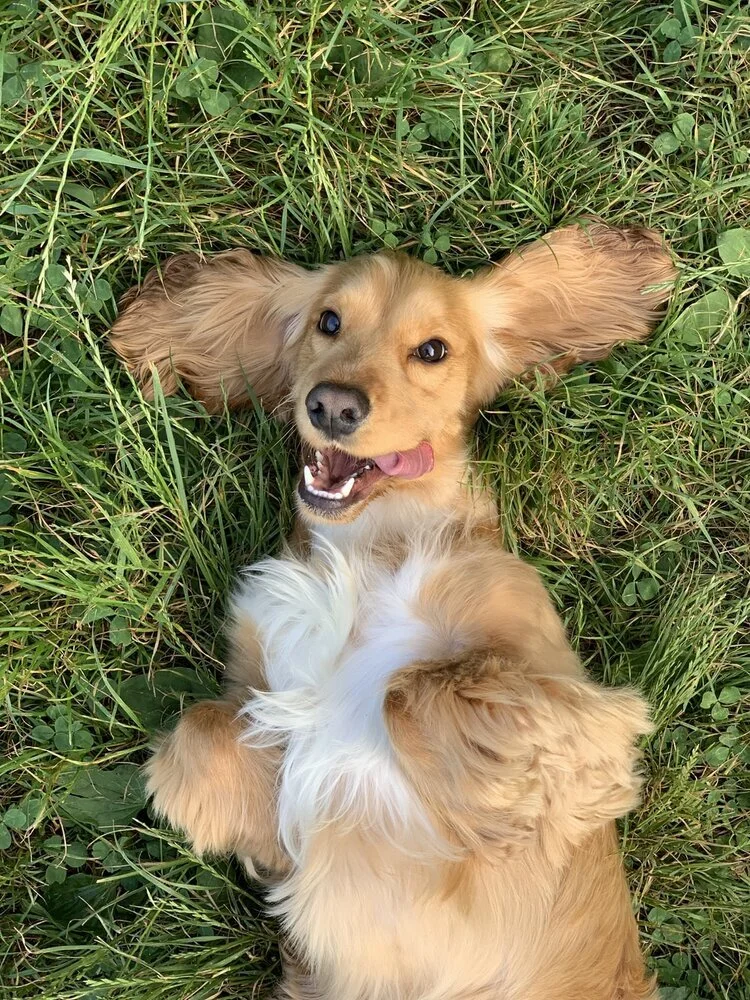Is your dog’s incessant scratching, licking, or chewing keeping you up at night? If you’re feeling frustrated, imagine how uncomfortable your canine companion must be. These compulsive behaviors are common in dogs and can stem from a variety of underlying causes, sometimes leading to a painful condition known as a “hot spot.” A hot spot, or acute moist dermatitis, is an inflamed, raw area that develops from persistent irritation. While hot spots can appear anywhere on a dog’s body, they are most frequently found on the head, chest, or hips. The constant cycle of scratching, licking, and biting can cause these spots to worsen rapidly, becoming significantly sore and large.
Understanding the Causes of Compulsive Dog Behaviors
Dogs engage in scratching, licking, or chewing for a multitude of reasons, which can range from simple boredom to more serious issues like allergies or parasite infestations. Recognizing the potential causes is the first step toward finding a solution for your dog’s discomfort.
Allergies
When a dog’s scratching becomes excessive, allergies are a frequent culprit. These can be triggered by food ingredients or environmental factors like pollen and mold. Additionally, dogs can develop contact dermatitis from skin irritation caused by contact with substances such as pesticides or soaps. If your dog is constantly scratching, it’s essential to consider allergic reactions as a potential cause.
Boredom or Anxiety
Just as humans may exhibit nervous habits like nail-biting or hair-twirling, dogs can also manifest psychological distress through physical behaviors. In some cases, dogs can develop a condition similar to human obsessive-compulsive disorder, which can manifest as compulsive scratching, licking, or chewing that may lead to severe skin damage. Addressing underlying anxiety or boredom is crucial in managing these behaviors.
Dry Skin
Several factors can contribute to dry skin in dogs, including harsh winter weather and deficiencies in essential fatty acids. When a dog’s skin is dry and itchy, they may respond by scratching or licking their skin and fur excessively. Ensuring proper hydration and a balanced diet can help combat dry skin issues.
Hormonal Imbalances
Hormonal imbalances can also play a role in compulsive skin-related behaviors. If a dog’s body isn’t producing adequate thyroid hormone or is producing too much cortisol, superficial skin infections can develop. This can lead to symptoms such as bald spots and an increased tendency to scratch or lick as if suffering from allergies. Consulting a veterinarian is important to diagnose and treat hormonal issues.
Pain
It’s crucial to consider physical discomfort when trying to understand why your dog is licking or chewing excessively. For example, if your dog is repeatedly biting at a paw, they might have a thorn or a sharp stone lodged in their footpad. Compulsive chewing or licking can also be a response to orthopedic problems, such as arthritis or hip dysplasia. Identifying and addressing the source of pain is paramount. For more information on common dog ailments, you might find my dog wont stop scratching himself a helpful resource.
Parasites
Parasites are among the most common reasons for compulsive licking, chewing, or scratching in dogs. Fleas, ticks, and mites can all cause significant discomfort. While ticks are often visible, fleas can go unnoticed until an infestation becomes widespread, and mites are microscopic. Therefore, do not assume your dog is free from parasites simply because you cannot see them. Regular deworming and flea/tick prevention are vital for your dog’s health. Understanding dog dominance behavior with other dogs can also be important for overall behavioral well-being.
Conclusion
Compulsive scratching, licking, and chewing in dogs are not just annoying behaviors; they are often indicators of underlying issues that require attention. By understanding the various potential causes—from allergies and boredom to hormonal imbalances, pain, and parasites—you can work with your veterinarian to diagnose the problem and implement the most effective treatment plan. Early detection and intervention are key to restoring your dog’s comfort and well-being. If you suspect your dog is suffering from any of these conditions, consult your veterinarian for a proper diagnosis and treatment.

